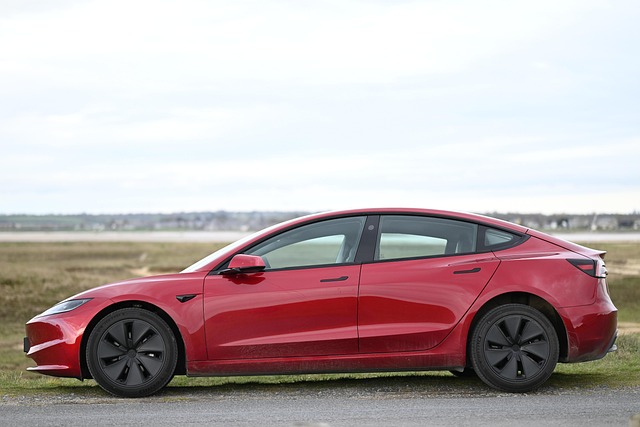Extreme weather events are no longer rare anomalies; they are becoming routine fixtures on the global calendar. Hurricanes with record wind speeds, floods that inundate entire towns, wildfires that scorch vast stretches of forest, and heatwaves that shatter record temperatures are increasingly linked to the gradual warming of the planet. When these events strike, the consequences ripple through ecosystems, economies, and the fabric of human life. The urgency to address the root cause—climate change—has never been greater, and it hinges on collective support from individuals, communities, and governments.
The Science Behind the Storms
Scientific consensus is clear: the Earth’s atmosphere is holding more heat because of the combustion of fossil fuels, the release of carbon dioxide, and the deforestation of critical carbon sinks. This warming shifts weather patterns, intensifying the extremes that we see now. According to climate models, by the middle of the century, storms that once occurred once every decade may become annual events. Understanding this science is the first step in building the support network needed to mitigate future damage.
Communities at the Front Line
Local communities, especially those in coastal or low‑lying regions, are experiencing the direct impact of rising sea levels and intensified storms. Residents of small island nations report that a single typhoon can wipe out a generation’s worth of infrastructure in hours. In many places, community leaders are now forming resilience groups that focus on both immediate disaster response and long‑term adaptation. The support these groups receive—through funding, training, and policy advocacy—determines whether a community can bounce back or continue to decline.
Grassroots Initiatives
Grassroots movements are pivotal. For instance, local “Storm‑Ready” committees collaborate with scientists to map flood zones and design low‑cost protective barriers. In some coastal villages, residents have engineered mangrove planting schemes that serve as natural windbreaks, reducing wind speeds by up to 30% during storms. These projects illustrate how community support can transform scientific insight into tangible resilience.
“When a community sees the direct benefits of protecting its environment, support for climate action becomes a shared responsibility.” – Dr. Elena Ramirez, Climate Adaptation Specialist.
Policy and Governance: A Necessary Catalyst
Effective policies provide the framework within which individual and community actions can thrive. Governments that enact stringent emissions standards, invest in renewable energy, and incentivize sustainable agriculture create an environment where public support is rewarded with real, measurable benefits. International agreements, such as the Paris Accord, also play a crucial role by setting global temperature targets that help galvanize national action.
Financial Incentives for Sustainable Practices
Tax rebates for solar panels, subsidies for electric vehicles, and grants for energy‑efficient building renovations are powerful tools that encourage citizens to adopt greener lifestyles. When people feel that their support for climate action is recognized and rewarded, participation rates rise dramatically. Additionally, municipalities that allocate budgets toward green infrastructure—like green roofs, permeable pavements, and urban forests—reduce the likelihood of catastrophic flooding during extreme weather events.
Technology and Innovation: Turning Knowledge Into Action
Innovation is at the heart of modern climate solutions. Advances in forecasting models allow for earlier warnings of extreme weather, giving communities crucial time to evacuate or prepare. Renewable technologies—such as offshore wind farms and advanced photovoltaic cells—have seen dramatic drops in cost, making clean energy more accessible than ever. Support for research and development in carbon capture and storage also promises to address the issue of existing fossil fuel infrastructure.
Individual Actions That Amplify Collective Support
While systemic change is essential, individuals possess the agency to create a ripple effect. Simple lifestyle choices—reducing meat consumption, opting for public transport, using energy‑efficient appliances—contribute to lower greenhouse gas emissions. More powerful actions include civic engagement: voting for leaders who prioritize climate policies, participating in local advisory boards, and spreading awareness within social networks. Every act of support magnifies the overall impact on climate resilience.
Education and Awareness Campaigns
Educational outreach that explains the link between everyday habits and climate outcomes is vital. Schools that incorporate climate science into curricula empower future generations with knowledge, while community workshops that demonstrate simple mitigation techniques foster a culture of support. When people understand how their choices affect the planet, they are more likely to commit to sustainable practices.
The Financial Path Forward
Investing in climate adaptation and mitigation requires significant capital. Public–private partnerships can mobilize billions of dollars toward resilient infrastructure. Green bonds, climate funds, and impact investing have emerged as effective financial mechanisms that align profitability with planetary health. For governments, establishing climate‑ready budgets ensures that disaster relief funds are available when extreme weather strikes, reducing the economic shock and providing a safety net for vulnerable populations.
Looking Ahead: A Future Forged by Support
By the year 2050, projections suggest that without substantial intervention, the frequency and intensity of extreme weather could double. Conversely, if current trajectories of support—policy reforms, technological adoption, and community engagement—continue, scientists anticipate a stabilizing climate with fewer catastrophic events. The window for decisive action is shrinking, making sustained support an imperative for survival and prosperity.
Call to Action: Your Role in a Global Movement
Support is a verb that requires action. Whether you are a policymaker, a business leader, a teacher, or an everyday citizen, your involvement matters. Commit to reducing your carbon footprint, advocate for science‑based policies, invest in green technologies, and empower your neighbors to do the same. In the face of extreme weather, the most resilient communities are those built on the foundation of unwavering support for climate action.




